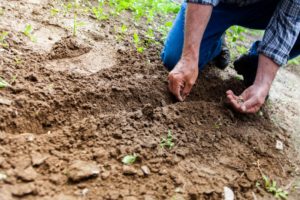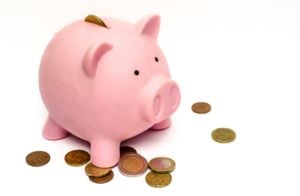Do Not Rely Solely on the Government for Help
In times of crisis, financial and medical relief can be difficult to come by. Depending on the type of crisis, national governments may not have all the resources they need to ease the population’s struggle. During the the US’s fight against the coronavirus, state governments are competing for those limited resources, resulting in price surges. Unfortunately, many people sick with the coronavirus have failed to get the medical attention they need. Moreover, the toll the economic shutdown has taken on people’s finances may be impossible to recover from. While the government is undoubtedly trying to help, the help is not enough. Individuals need to learn to be self-sufficient in good times and bad. Preppers that increase their level of independence and reduce their reliance on government will be more insulated from crises like the coronavirus pandemic. Below, I share how preppers can learn self-sufficient living.
Feed Yourself Without Going to the Grocery Store

The coronavirus pandemic, similarly, has placed a strain on our food supply. Supply chains are disrupted, grocery stores are short on inventory, and food delivery services are discontinued. By learning how to hunt for and grow your own food, you can better guarantee your food security throughout crises. Additionally, homesteading will save you money in the long run. When food is in short supply, prices increase. If you are hunting for and growing your own food supply, you’ll be immune to the economic consequences of a large scale food supply shortage.
Protect Your Finances During Crises
In defense of the quarantine measures, we’ve heard politicians repeatedly state that we need to make sacrifices for the benefit of the greater good. I agree that the sacrifice they’re asking us to make is necessary, but this sacrifice is just the tip of the iceberg. We need to tighten our purse strings as well. To be less dependent on government checks, we’ll need to modify our spending  behaviors. We should always be living below our means. If our means are increasingly uncertain, then we should be extremely cautious. First, we should avoid taking on any additional debt. The last thing we need during tough market conditions is another financial obligation. Let’s also buy generic brands, buy used goods, wear clothes a bit longer before buying new ones, and use duct tape to fix something we broke instead of purchasing a replacement. While this advice may seem obvious, small behavioral modifications can translate into big savings in the long run.
behaviors. We should always be living below our means. If our means are increasingly uncertain, then we should be extremely cautious. First, we should avoid taking on any additional debt. The last thing we need during tough market conditions is another financial obligation. Let’s also buy generic brands, buy used goods, wear clothes a bit longer before buying new ones, and use duct tape to fix something we broke instead of purchasing a replacement. While this advice may seem obvious, small behavioral modifications can translate into big savings in the long run.
If you live off of a salary, then you’re not self-sufficient. You’re operating at the whim of your employer. It’s important that you diversify your income streams, so you can grow less dependent on that paycheck. Focus on monetizing your skills and capitalizing on some of the remote work people are finding. The more ways in which you bring in the money, the less reliant you are on any one income stream. The best way to protect your finances is to diversify them.
Additionally, it’s important to save what you can while you can. Very few individuals and companies alike have financial buffers. Build your buffer, which can serve as an umbrella on a rainy day.
Educate Yourself About Risks and Mitigation Strategies
Survivors of catastrophic events never say they were too prepared. Sure, they may credit their survival to a lot of luck. Preparation, though, helps to reduce the amount of luck you need. You may be asking what catastrophic events we should be preparing for. Could we have predicted the coronavirus pandemic? Yes! Some people did. Our government, however, did not. I’m not saying we  simply need to be ahead of the government. Frankly, that’s pretty easy. To be self-sufficient, we need to pay attention both to global risks and the day-to-day risks we’re most likely to encounter. Where I live, what I do, and how I live my life exposes me to a different set of risks than those you are exposed to. This means that each person should have a unique shtfplan that mitigates the risks they’re exposed to the most.
simply need to be ahead of the government. Frankly, that’s pretty easy. To be self-sufficient, we need to pay attention both to global risks and the day-to-day risks we’re most likely to encounter. Where I live, what I do, and how I live my life exposes me to a different set of risks than those you are exposed to. This means that each person should have a unique shtfplan that mitigates the risks they’re exposed to the most.
Understanding global risks isn’t just a matter of staying on top of current events. It’s also a matter of studying history. History, as you know, tends to repeat itself. Financial crises are cyclical. Geopolitical and religious tensions occasionally escalate to a full-blown war. Learn how past crises emerged and what was done to recover from them. You’ll never be certain about what risks are most likely to manifest. You can, however, develop response plans to different crises. Governments don’t always have these plans in place. Preppers capable of self-sufficient living definitely do.
Train Yourself to Survive Through a SHTF Event
Skill development is essential to surviving through a SHTF event like a pandemic. That said, simply learning techniques without having practiced them won’t count for much during a crisis. You may have the gear needed to hunt for food, but have you learned how to use it? Are you physically fit enough to execute an escape plan, should it be necessary? The government doesn’t always offer the best guidance during SHTF events. In fact, some of the guidance is absolutely ridiculous.
We therefore need to train ourselves to survive through a SHTF event. Basic knowledge of survival medicine, self defense, and foraging are all great places to start. As mentioned above, our plans should be tailored to the SHTF event we’re preparing for. The better trained we are, the more self-sufficient we can be.
Self-Sufficient Living is the Best Protection from Crises
If you’re capable of self-sufficient living, then you have all the insurance you need against SHTF events. The less dependent you are on employers and governments, the better off you are. Achieving true self-sufficiency isn’t easy. But, the quicker you take the steps necessary to become self-sufficient, the more protected you’ll be from crises. With that in mind, don’t you think you should get started?
Do you have thoughts on self-sufficient living? Leave a comment below or contact me directly.


